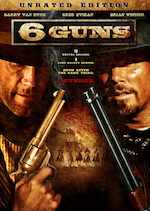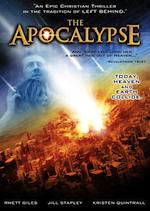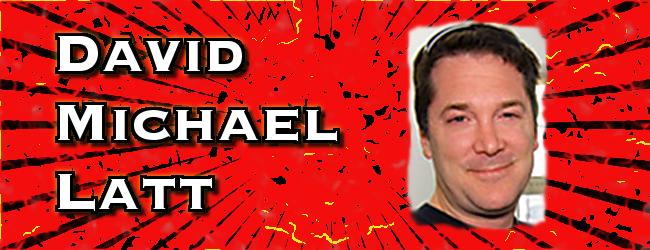David Michael Latt is the co-founder of The Asylum, the most prolific independent film studio in Hollywood. Latt heads up production which produces a feature film every three to four weeks. He develops and overseas all aspects of the physical production. Mr. Latt has won more than three dozen film awards, and his features have been invited to over 100 film festivals worldwide.
Trevor: You mainly produce for The Asylum, but you also have directing, editing and visual effects credits on some of the films. What drives you to take on those other roles?
 David Michael Latt: Well, you know that really starts from early on. Making films when I was 9 or 10; just doing everything. Bottom line is I’m a huge fan of production; every aspect of it. I don’t hire anyone for anything that I don’t understand the issue or can’t do myself. I’m really the fail safe guy, that if something should fall through – I’m the guy that we turn to, to make it right for what we need. I may not be as good as the people I hire, but I’m confident enough so that I’ve pretty much done everything in every department of film. I can talk intelligently with the department heads, but also when I need things to happen the ‘B.S’. factor is a little bit lower because I know some of the stuff that’s going on and can fix it. But really because of the budget and our extreme deadlines, if we don’t have the special effects done in time we’re not going to delay the street date. We have a hard street date so that means someone’s got to get those special effects done. So I’ll do it, or I’ll write it or I’ll do sound or music, whatever it is. You know I’m going to be sure that the project gets done on time, whether I have to do it myself or not.
David Michael Latt: Well, you know that really starts from early on. Making films when I was 9 or 10; just doing everything. Bottom line is I’m a huge fan of production; every aspect of it. I don’t hire anyone for anything that I don’t understand the issue or can’t do myself. I’m really the fail safe guy, that if something should fall through – I’m the guy that we turn to, to make it right for what we need. I may not be as good as the people I hire, but I’m confident enough so that I’ve pretty much done everything in every department of film. I can talk intelligently with the department heads, but also when I need things to happen the ‘B.S’. factor is a little bit lower because I know some of the stuff that’s going on and can fix it. But really because of the budget and our extreme deadlines, if we don’t have the special effects done in time we’re not going to delay the street date. We have a hard street date so that means someone’s got to get those special effects done. So I’ll do it, or I’ll write it or I’ll do sound or music, whatever it is. You know I’m going to be sure that the project gets done on time, whether I have to do it myself or not.
T: The Asylum has been producing ten plus films a year since 2005. How long does it typically take from start to finish for you to get a film made?
DML: Four months. Between talking about a concept and seeing it on the shelf at Blockbuster. It’s roughly about four to six months. Six at the most if there’s a lot of visual effects. A film we shot in January will be on the shelf by April or May.
T: Speaking of Blockbuster, you have close ties to them. I’ve read that Blockbuster has approached you to make specific films before. What’s your relationship like with them and does that extend out to other vendors?
 DML: Our relationship with Blockbuster is very strong; it’s very intimate,(laughs) a little nasty, kinky at times, lots of fetish stuff. But you know, they’re one of our biggest supporters and the reason The Asylum exists. Unfortunately were doing the death march with Hollywood Video. Our relationships are about 10 years old with our vendors. That’s how you build those relationships and making things happen. It’s a small community. The secret to The Asylum is that we don’t pander to our audience, we pander to our buyers. If our buyers want a western were going to make a western. If they want a giant shark fighting an octopus we’re going to make that. That’s how we make films. That’s the position of how we make what film we make. Our buyers are in-tune to the consumer. They’re on a much more intimate level with what the consumer wants. We have no idea what the consumer wants. We assume they want an entertaining film, but when Blockbuster says they want a western, we’ll make the best western we can make. They kind of call the shots at what films we should be making.
DML: Our relationship with Blockbuster is very strong; it’s very intimate,(laughs) a little nasty, kinky at times, lots of fetish stuff. But you know, they’re one of our biggest supporters and the reason The Asylum exists. Unfortunately were doing the death march with Hollywood Video. Our relationships are about 10 years old with our vendors. That’s how you build those relationships and making things happen. It’s a small community. The secret to The Asylum is that we don’t pander to our audience, we pander to our buyers. If our buyers want a western were going to make a western. If they want a giant shark fighting an octopus we’re going to make that. That’s how we make films. That’s the position of how we make what film we make. Our buyers are in-tune to the consumer. They’re on a much more intimate level with what the consumer wants. We have no idea what the consumer wants. We assume they want an entertaining film, but when Blockbuster says they want a western, we’ll make the best western we can make. They kind of call the shots at what films we should be making.
T: Your films are everywhere, Blockbuster, Red Box, Netflix streaming, and now you have a deal with the SyFy channel?
DML: All of our relationships are pretty old. SyFy, we’ve consigned with them for years and years. They probably have about 40 of our movies. We’ve had originals for them, we co-produced a film last year called MegaFault. And because of the success of that we have a four picture deal with them this year. We want to recapture the success of MegaFault and get the rating successes for them and for us, because it’s always good.
T: Speaking of MegaFault you got Brittany Murphy to do that, and in most of your films lately you’ve had pretty decent names. C. Thomas Howell, Mark Dacascos, Lorenzo Lamas, Antonio Sabato Jr. How do you decide who to cast and how do you go after them?
 DML: It depends on the genre. With Mark Dacascos we wanted someone who could do martial arts, and he’s such a great actor, we just lucked out with him. It’s more about the relationships with agents and managers. I have a very one on one with a lot of agents and managers in town. It’s really going through their roster more than anything else. Now we may have a hankering for one actor, and we’ll go after that actor, but usually when that happens we can’t afford that person. And it’s just not going to work out timing wise. It’s easier for me to go to Tommy’s (C. Thomas Howell) manager and say, “Ok, who’s on the list”, and consider who’s available and will they work at this price. They might say, “well Bruce Boxleitner is available, he just finished Tron. Do you want to make an offer to him?” “Ya he’d be great in this role, lets put Bruce in this film.” So it’s more the relationships that I have with their agents and managers. It’s true we have a lot of actors in our films so I do have a nice relationship with them as well. I can call up Tommy and say, “hey do you wanna be in this film.”
DML: It depends on the genre. With Mark Dacascos we wanted someone who could do martial arts, and he’s such a great actor, we just lucked out with him. It’s more about the relationships with agents and managers. I have a very one on one with a lot of agents and managers in town. It’s really going through their roster more than anything else. Now we may have a hankering for one actor, and we’ll go after that actor, but usually when that happens we can’t afford that person. And it’s just not going to work out timing wise. It’s easier for me to go to Tommy’s (C. Thomas Howell) manager and say, “Ok, who’s on the list”, and consider who’s available and will they work at this price. They might say, “well Bruce Boxleitner is available, he just finished Tron. Do you want to make an offer to him?” “Ya he’d be great in this role, lets put Bruce in this film.” So it’s more the relationships that I have with their agents and managers. It’s true we have a lot of actors in our films so I do have a nice relationship with them as well. I can call up Tommy and say, “hey do you wanna be in this film.”
T: The Asylum does a lot of tie-ins (mockbusters) with the big main stream movies. You talk a lot about the buyers coming to you. Do you ever decide which mainstream films to tie into, or is that all vendor based?
 DML: We’ll have our list of what we think will work out in the general market place; and well pitch them to our buyers and say, “look, is a film about transforming robots interesting to you?” Sometimes they say yes, and sometimes they say no. We have missed opportunities with movies that have done well, and we’ve also mockbusted movies that did not do well and in turn our film also suffered. It’s a formula that doesn’t necessarily always work. I would say The Asylum changes like every 18 months. The mockbuster for The Asylum is really due for a change and we are kind of moving away from it. Three of our biggest hits last year were not mockbusters at all; including this year, which were Mega Piranha, Mega Shark vs Giant Octopus and MegaFault. So I guess you can say were going to have a lot more mega movies than mockbuster movies. But the trend changes and we’re a small enough company that we can respond to those changes and react quickly.
DML: We’ll have our list of what we think will work out in the general market place; and well pitch them to our buyers and say, “look, is a film about transforming robots interesting to you?” Sometimes they say yes, and sometimes they say no. We have missed opportunities with movies that have done well, and we’ve also mockbusted movies that did not do well and in turn our film also suffered. It’s a formula that doesn’t necessarily always work. I would say The Asylum changes like every 18 months. The mockbuster for The Asylum is really due for a change and we are kind of moving away from it. Three of our biggest hits last year were not mockbusters at all; including this year, which were Mega Piranha, Mega Shark vs Giant Octopus and MegaFault. So I guess you can say were going to have a lot more mega movies than mockbuster movies. But the trend changes and we’re a small enough company that we can respond to those changes and react quickly.
T: Considering Mega Shark and Mega Piranha, they have definite viral moments in the trailers, do you look to include that and work out a ‘trailer moment?’
 DML: It didn’t start out that way. No one had any idea that Mega Shark would take off the way it did. I think we were a lot more conscience of it with Mega Piranha, which meant that it wouldn’t really work as well. Viral and the word of mouth is completely unpredictable. It’s something that we can’t recapture. Mega Piranha did really well virally and it did really well in all the other aspects, but not nearly as well as Mega Shark did.
DML: It didn’t start out that way. No one had any idea that Mega Shark would take off the way it did. I think we were a lot more conscience of it with Mega Piranha, which meant that it wouldn’t really work as well. Viral and the word of mouth is completely unpredictable. It’s something that we can’t recapture. Mega Piranha did really well virally and it did really well in all the other aspects, but not nearly as well as Mega Shark did.
T: Does The Asylum’s record of never losing money on a picture still stand true?
DML: Yes that is true. The Asylum has not lost money. Again, and it’s not like we’re geniuses, we have really good relationships as a distributor. We make films that our buyers want. If they have a limited budget and they’re going to buy 10 titles for that month, they’re going to find the ones that really respond to them. If we made a film for them then they’re going to buy it. Our films do a certain kind of number and they can expect it. Whether the buyer likes the movie or not they’re going to pick up the film because we’re making a pretty consistent product each time.
T: You’ve recently started a new division, Faith Films, which makes mainly Christian disaster movies. Does The Asylum’s horror and raunchy unrated film background hurt distribution in that area, or do those buyers just disregard that?
 DML: It’s a whole new division called Faith Films and one doesn’t have to do with the other. For that particular market, the Faith Films market, we’ve deliberately separated them. It’s kind of like Fox having their Fox Faith, different labels as well. It’s a matter of survival because the Christian market wants product, but they want to make sure that it comes from a genuine source and that its not diluted by secularism, or by atheism, they want to make sure that the people that are in charge of it believe in the word of God. But when you couple that with the company that made Shapeshifter, War of the Worlds and Sex Pot then the audience falls apart. So you have to keep them separate. We don’t make a secret of it, and sometimes the audience finds out which can be a little problematic. The average viewer
DML: It’s a whole new division called Faith Films and one doesn’t have to do with the other. For that particular market, the Faith Films market, we’ve deliberately separated them. It’s kind of like Fox having their Fox Faith, different labels as well. It’s a matter of survival because the Christian market wants product, but they want to make sure that it comes from a genuine source and that its not diluted by secularism, or by atheism, they want to make sure that the people that are in charge of it believe in the word of God. But when you couple that with the company that made Shapeshifter, War of the Worlds and Sex Pot then the audience falls apart. So you have to keep them separate. We don’t make a secret of it, and sometimes the audience finds out which can be a little problematic. The average viewer  of a Faith Films’ movie is looking for good wholesome moral value content and not necessarily worried about the letter of the law and saying, “oh my goodness the producer of this movie also made the 18 Year Old Virgin.” I think they just want something to show their kids, that’s not patronizing and has a good story. Again you get the fringe people though, and then it becomes a problem. Because we lose them as audience members once they realize, “oh they’re not genuine”. And it’s unfortunate that they’re going to miss out on a lot. I remember doing research initially for actors on the movies, because you have to be very careful with the actors you put in there. Some of the actors are born again and true believers. And I go on the blogs and people are like, “I hate this actor.” “Why?” “Well they said the word damn in a movie back in 1973.” It’s like, “What? That’s the reason for boycotting every film this person has ever done? Even though they’re spreading the word of God.” So you get the fringe people that are going to just react to things that you can’t predict. You don’t make a business model around it, but for this particular market you deal with it more sensitively.
of a Faith Films’ movie is looking for good wholesome moral value content and not necessarily worried about the letter of the law and saying, “oh my goodness the producer of this movie also made the 18 Year Old Virgin.” I think they just want something to show their kids, that’s not patronizing and has a good story. Again you get the fringe people though, and then it becomes a problem. Because we lose them as audience members once they realize, “oh they’re not genuine”. And it’s unfortunate that they’re going to miss out on a lot. I remember doing research initially for actors on the movies, because you have to be very careful with the actors you put in there. Some of the actors are born again and true believers. And I go on the blogs and people are like, “I hate this actor.” “Why?” “Well they said the word damn in a movie back in 1973.” It’s like, “What? That’s the reason for boycotting every film this person has ever done? Even though they’re spreading the word of God.” So you get the fringe people that are going to just react to things that you can’t predict. You don’t make a business model around it, but for this particular market you deal with it more sensitively.
T: You still shoot a lot on 35mm film, but you’ve also shot on digital and just recently the Red camera. Is there really any truth behind the budget savings of shooting digital vs shooting film?
DML: We were like the last holdout to go to HD, but we’ve been on HD for about three or four years now. MegaFault was shot on 35mm and this year we started using the Red. The difference between shooting on film and digital between two films, take Mega Piranha vs MegaFault, it’s about $150,000. That’s how much it saves us. Enormous savings. If I could avoid shooting 35mm I would, it was great while it lasted, but there was a time for it.
T: With the whole emergence of 3D in the home are you planning on doing more 3D films?
DML: We’ve done two of them. Haunting of Winchester House and Sex Pot. There were a lot of technical issues with both of them. Blockbuster took the 3D/2D version and Hollywood Video took the 2D only version. There was zero difference between the sales or rentals at either store. So we learned from that not to cater to 3D. It’s too complicated, too difficult, too time consuming, too expensive and at a low budget it’s just not going to look great. It’s not going to be Avatar and it doesn’t help tell the story any better, so at the end of the day, why bother?
 T: Can you tell us anything about Titanic 2?
T: Can you tell us anything about Titanic 2?
DML: No!(laughs) You’ll never guess what happens. Titanic 2 is a great action/adventure movie. It’s based on a true story. In reality a big corporation is rebuilding – napkins to the nails- a version of the same titanic built a hundred years ago. And when they launch it they’re going to take the exact journey that the original did. We’re basically using that as our storyline, and while they successfully navigate the iceberg, they’re unable to navigate the tsunami that the iceberg creates. (Principle photography wrapped May 7th)
T: How do you go about finding writers and directors? Do you have an inside studio system that you use?
DML: Yes, it’s really hard right now because I’m so used to my guys. Just make the phone call, “look were making a big foot film, here’s the premise, write me a one pager, and then a five pager and now write the script.” I rarely take outside suggestions and I never read them. I don’t have the time, we’re making a film every four weeks. The door used to be open for years, but it kind of closed when we started making a movie every month.
T: Any other projects you’d like to let us know about?
DML: There are a few for SyFy. They’re really big and outrageous so keep an eye out for them and check our twitter page for updates. Outside of that it’s fun because every month it’s a different genre so it never gets old. We’re terrible film promoters. I don’t have the publicity bull by the horns, but with fun titles and fun content it’s all word of mouth. I’m more worried about what’s going on today than down the line.
The Asylum – Official Site
The Asylum – Twitter Page
David Michael Latt – IMDb

